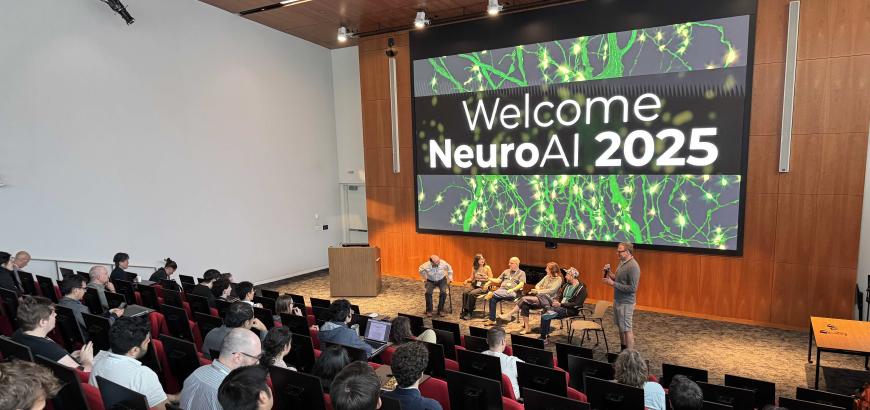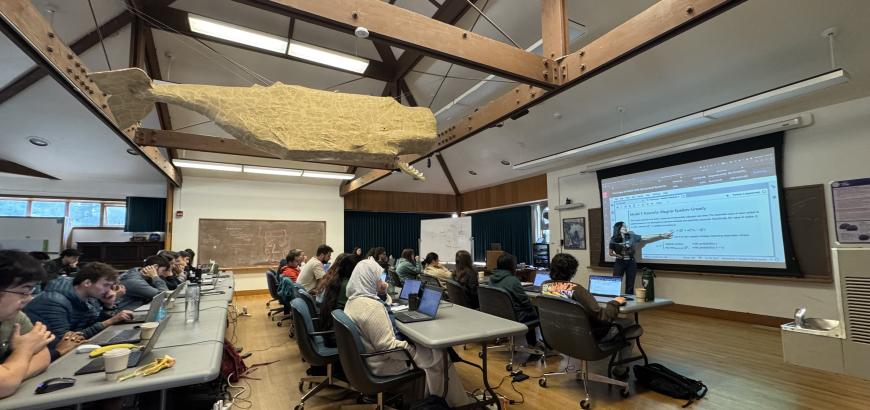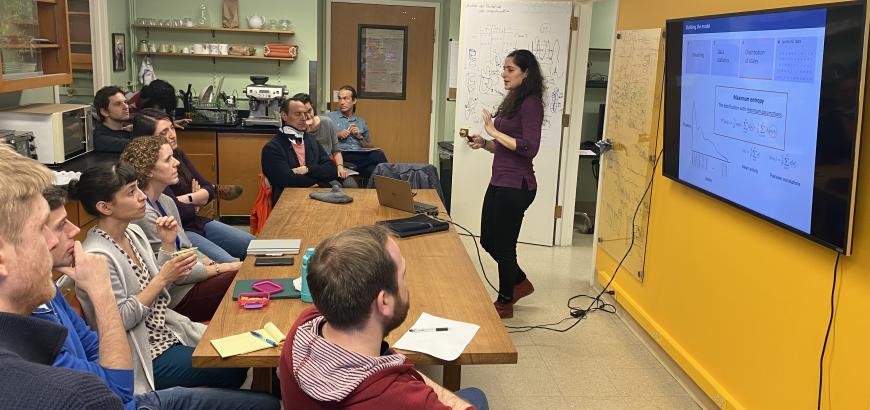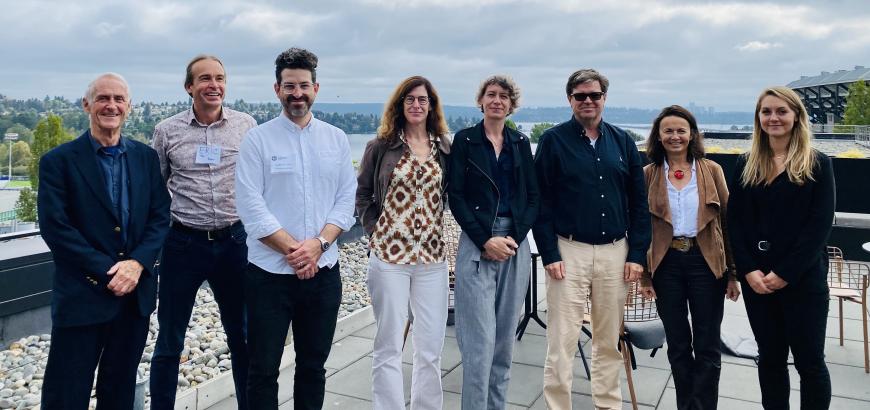By Eric Shea-Brown, Adrienne Fairhall, and Jessica Huszar
AI is on all of our minds, and that is no accident -- effective AI systems are based on neural network wiring mechanisms derived from the biological brain. Indeed, computer science and circuit level neuroscience have been called “twins separated at birth” by Google VP (and CNC affiliate theorist) Blaise Aguera y Arcas. The twins are meeting again -- and we’ve discovered that it may well be triplets. Applied mathematics has found itself at the core of understanding both biological and artificial intelligence.
It’s almost impossible to overstate how abundant -- and how all embracing -- the opportunities for applied mathematics are in deciphering intelligence. Nonlinear waves? Yes indeed -- traveling wave phenomena appear to modulate signal processing and observable behavior, making the brain a kind of spatiotemporal computing media. Random matrix theory? For sure -- because that medium is squarely between homogeneous and totally disordered, being built from complex networks summarized through rich matrix and tensor statistics. Sparse and efficient linear algebra? You bet -- often one can’t even start to load the underlying matrices into memory, let alone analyze them directly. Add this to nonlinear dynamical systems, machine learning, control theory, optimization, stochastic processes, and information theory, and the picture just starts to form.
The goal of the CNC is to open these and allied opportunities to all, and to grow and support a joyful community working together to advance them. AMATH joined with the Department of Neurobiology and Biophysics and other partners across the university in 2017 to found the CNC, recognizing that success demands bringing together those at all career stages and from almost all departments and schools (see more in a past newsletter piece). We’ve also built a wonderful set of collaborations with the Allen Institute -- a powerhouse open science enterprise almost totally unique in the world. The partnership between UW and the Allen delivers the best of all worlds, from massive and brilliantly designed new datasets, to large scale team science theory and modeling projects, to dreamy and high-risk ideas sparked by the creativity of individuals and student-advisor teams.
Join us! For starters, each Wednesday afternoon we hold a community gathering, the CNC Forum. We start with a tasty lunch social, move to a seminar, and from there to space and time to work together in a beautiful setting plus a weekly menu of smaller workshops and journal clubs. You are warmly invited to join all or part. Each year we hold the Connectome, a two-day, free on-campus conference featuring talks from students, local faculty, and leading researchers from around the country. Annual Neuro-AI conferences, run in collaboration with the Allen Institute, bring additional focus on the interface of evolved and engineered intelligence. Quarterly, partners from the Allen Institute for Neural Dynamics hold a CNC/Allen Hackathon giving us (you!) the opportunity to engage hands on with cutting edge, often unreleased data that is, more often than not, the best in its class worldwide.
We are just getting warmed up. Undergraduates -- add the Minor in Neural Computation and Engineering to your major, with a tailored set of courses! Graduate students -- add the Certificate in Neural Computation and Engineering to your Masters or PhD! Apply for the Allen/UW Summer Workshop on the Dynamic Brain, held UW’s island laboratory up the coast. Throw in your hat for fellowship opportunities, including the Allen/UW Shanahan Fellowship with annual calls at the postdoctoral and undergraduate/postbac levels. And much more.
How? Head to the CNC website, scroll down and join our mailing list. You’ll get announcements and reminders of everything.
We look forward to seeing you soon!



